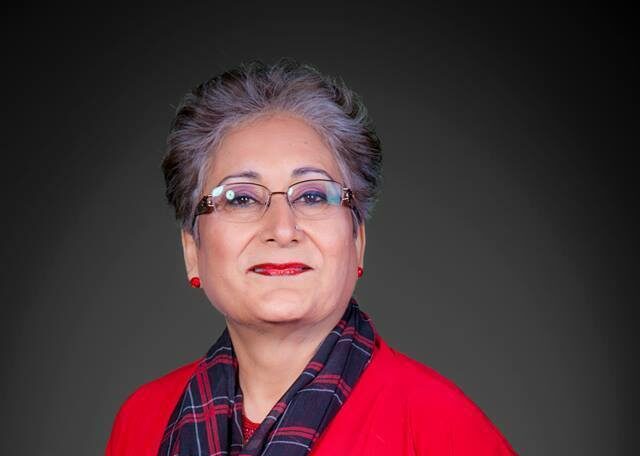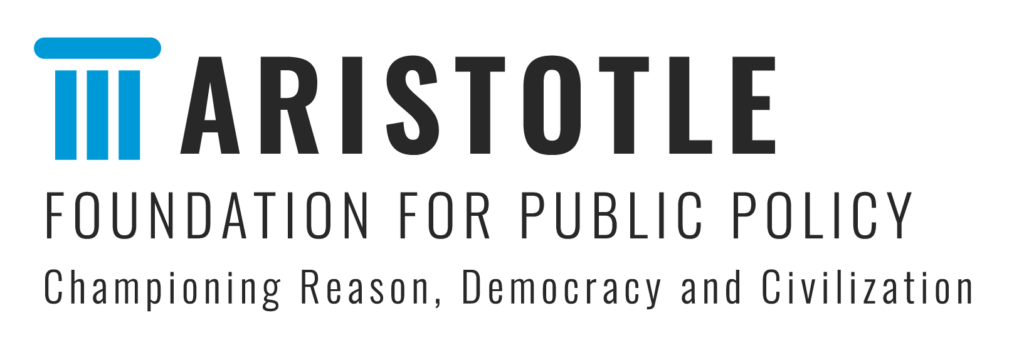
Raheel Raza, Farhana Khorshed, Soraya Deen, & Zainab Khan
Newsweek, January 25, 2024
We as Muslim women have condemned the Oct. 7 Hamas attacks, including the brutal and systematic rape and sexual violence against dozens of women and girls in southern Israel—and we have all faced criticism and threats for doing so, even as we now all live in democratic societies in North America. Our faith demands that we speak out and ensure that there is no justification for these atrocious acts. We stand together to denounce them, and the fact that they were carried out by a movement that identifies with Islam.
Now, as women’s rights activists, we need to keep talking—and speak louder.
Many of the women who suffered the most horrific of rapes and mutilation that day are dead. They can’t speak. Nineteen other women remain hostage in Gaza, at grave danger of sexual assault and death. They have no way to reach the world with their voices. Most rape survivors from that day have found it too difficult to speak publicly, at least for now. And the global institutions supposedly committed to women’s rights, including the United Nations, have chosen not to say much, or waited far too long before speaking out all.
U.N. agencies did not condemn the rape and sexual torture until nearly two months after the attacks, even though much of the violence was recorded by the perpetrators themselves with mobile phone and body cameras, as well as documented by security cameras and first responders. Graphic footage emerged as early as the day of the attack, while the violence was still unfolding across southern Israel. Yet media coverage of this gender-based violence was scant, until very recently.
We are determined to pierce through the silence on this subject. If we do not, the global women’s rights movement will continue to be compromised, at risk of losing its legitimacy to politics, bias and antisemitism.
And women everywhere will be at greater risk of violence and dehumanization, backed up by the legitimacy of global institutions that simply stand by silently. One condemnation or investigation is not enough. What happened to women in Israel on Oct. 7—and the world’s reluctance to talk about it— must be an ongoing topic of conversation.
Speaking about those crimes is the only way to stand with the victims, which is vital to healing for survivors, for their families, and to all Israeli women who have been traumatized by the violence and further isolated by the shock that few believe them or care.
Rape is dehumanizing; it has long been used to silence women, physically and emotionally. When others who know about these crimes refuse to believe them or talk about them, the victims continue to be victimized again and again.
That is why the silence was, and continues to be, so damaging.
In other instances of mass rape and brutality against women, including in Somalia, the United Nations and other humanitarian organizations have been quick to clearly condemn it. So what caused these international organizations to wait so long before speaking out against what happened to so many girls and women in Israel on Oct. 7 when the evidence and documentation was so vast?
It seems very likely that bias, antisemitism, and politics contributed to this silence, revealing that much of the international community sees these Oct. 7 female victims as less worthy of attention and support due to their nationality and religion.
With such a calculation, the women’s rights movement has clearly lost its way. It can’t be that we as women stand up for the rights of some of our sisters, but not others based on nationality, religion or any other characteristic. A public reckoning—and apology—about why so many still remain silent, is needed to restore legitimacy to the international women’s movement as a movement that stands up for all women, including religious minorities, and their rights everywhere.
It is also critical to name the criminals and perpetrators. The men who carried out these crimes were armed members of Hamas, a designated terrorist organization, along with other unaffiliated civilians from Gaza. They infiltrated the border with Israel as part of a massive attack on civilians in their homes and at a music festival. Their stated mission was to murder and terrorize civilians. They systematically raped and sexually assaulted innocent, unarmed women (and some men) in Israel. Hamas, the main group leading the assault that day, has denied targeting civilians and committing sex crimes, saying their “religion, values and culture” prohibit such behavior.
Islam, the proclaimed religion of Hamas, does indeed prohibit such behavior. But Hamas clearly ignored this and embraced violence against women, children, and civilians in general. Now, they continue to lie about it.
If we, as Muslim women, do not raise our voices against this, we are giving a green light to other extremist groups such as Boko Haram, ISIS, and Hezbollah, who are already emboldened in their acts of terrorism and violence, to act like Hamas.
We must not rest our voices until the world holds Hamas and other similar violent and oppressive groups accountable.
As we write this, five decades of progress on women’s rights is at risk of simply fading away. We cannot fall into old patterns we have spent years working to erase—patterns like not believing women, blaming the victim in order to justify rape, or remaining silent because the topic is uncomfortable.
Today, more than ever, we need to stand up for women and girls everywhere, and that means talking about the sexual violence that happened on Oct. 7. If we remain silent, we are giving up, surrendering to bias and hate, and abandoning women everywhere.
This column first appeared in Newsweek. Raheel Raza is a Senior Fellow with the Aristotle Foundation for Public Policy. Farhana Khorshed, Soraya Deen, Raheel Raza and Zainab Khan are women’s rights activists and founding members of The Collective, a grassroots movement of Muslim and Jewish women who unequivocally denounce terrorism and antisemitism and are working toward a shared future. The Collective is part of The 49%, a non-profit organization dedicated to telling the world’s most urgent women’s rights stories.
Like our work? Think more Canadians should see the facts? Please consider making a donation to the Aristotle Foundation.

The logo and text are signs that each alone and in combination are being used as unregistered trademarks owned by the Aristotle Foundation. All rights reserved.
SUBSCRIBE TO OUR NEWSLETTER
SUBSCRIBE TO OUR NEWSLETTER

are signs that are each alone and in combination are being used as unregistered trademarks owned by the Aristotle Foundation. All rights reserved.
SUBSCRIBE TO OUR NEWSLETTER

SUBSCRIBE TO OUR NEWSLETTER
